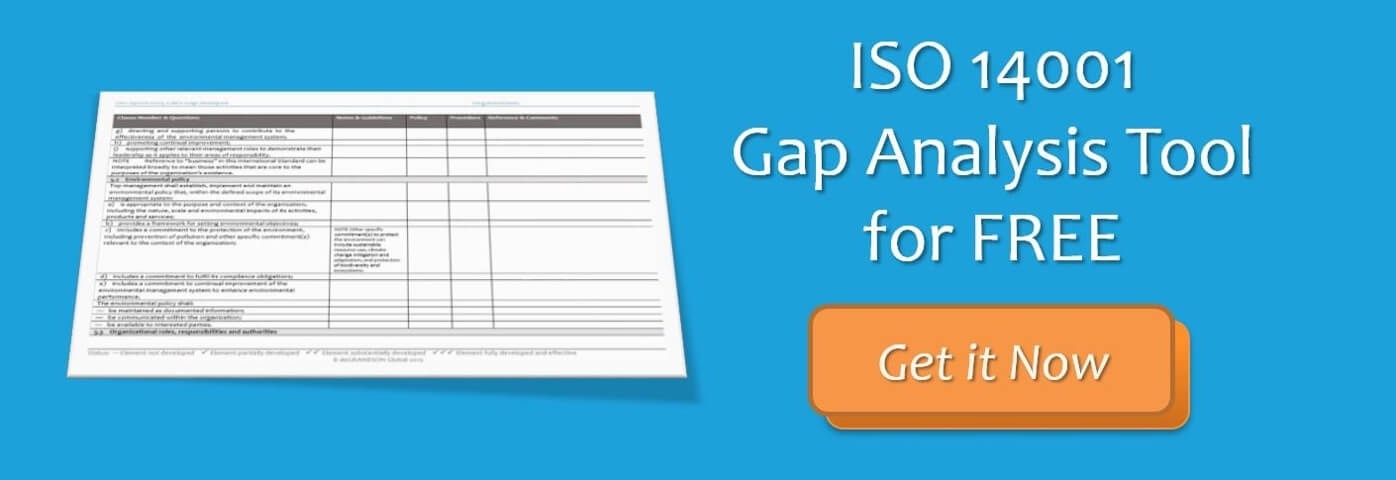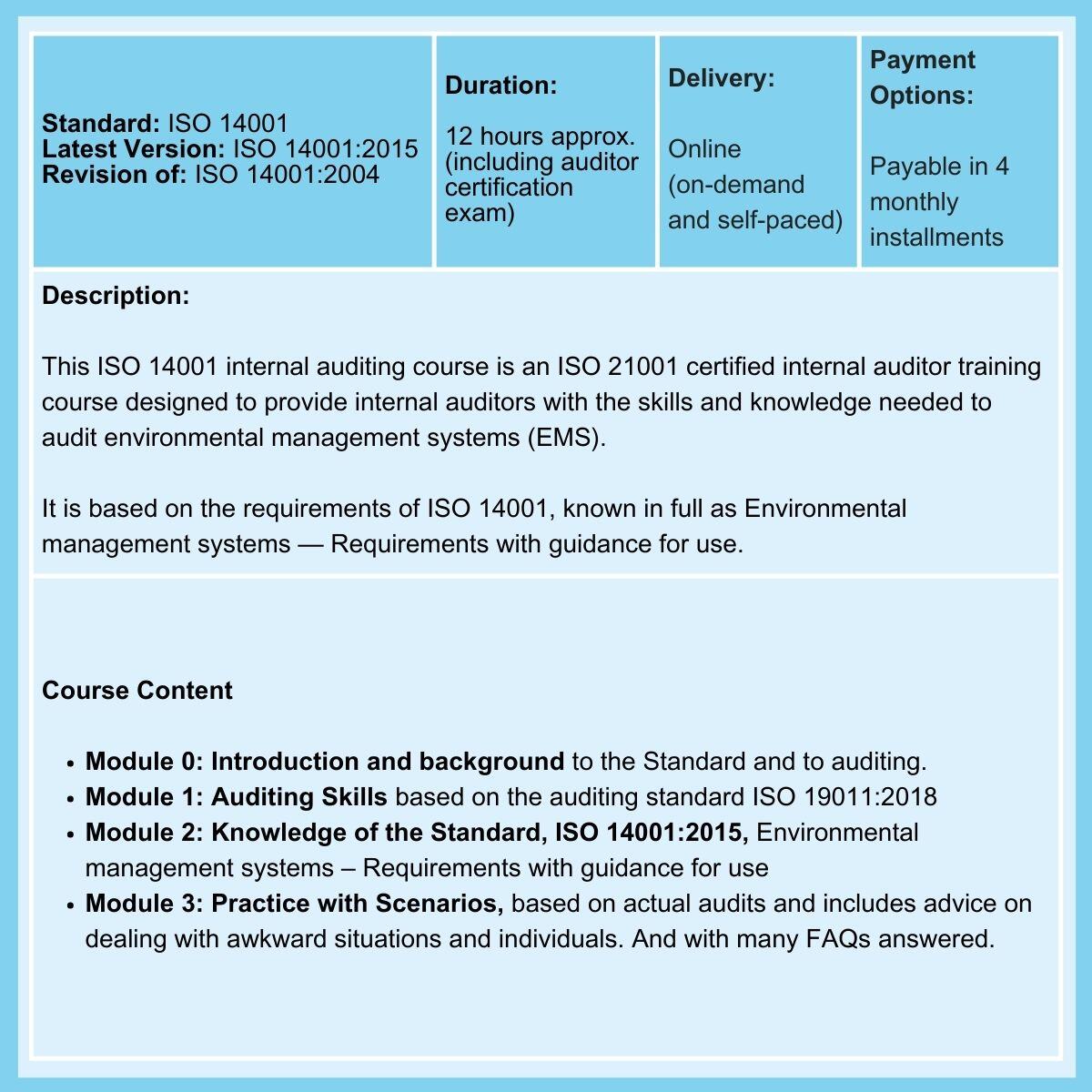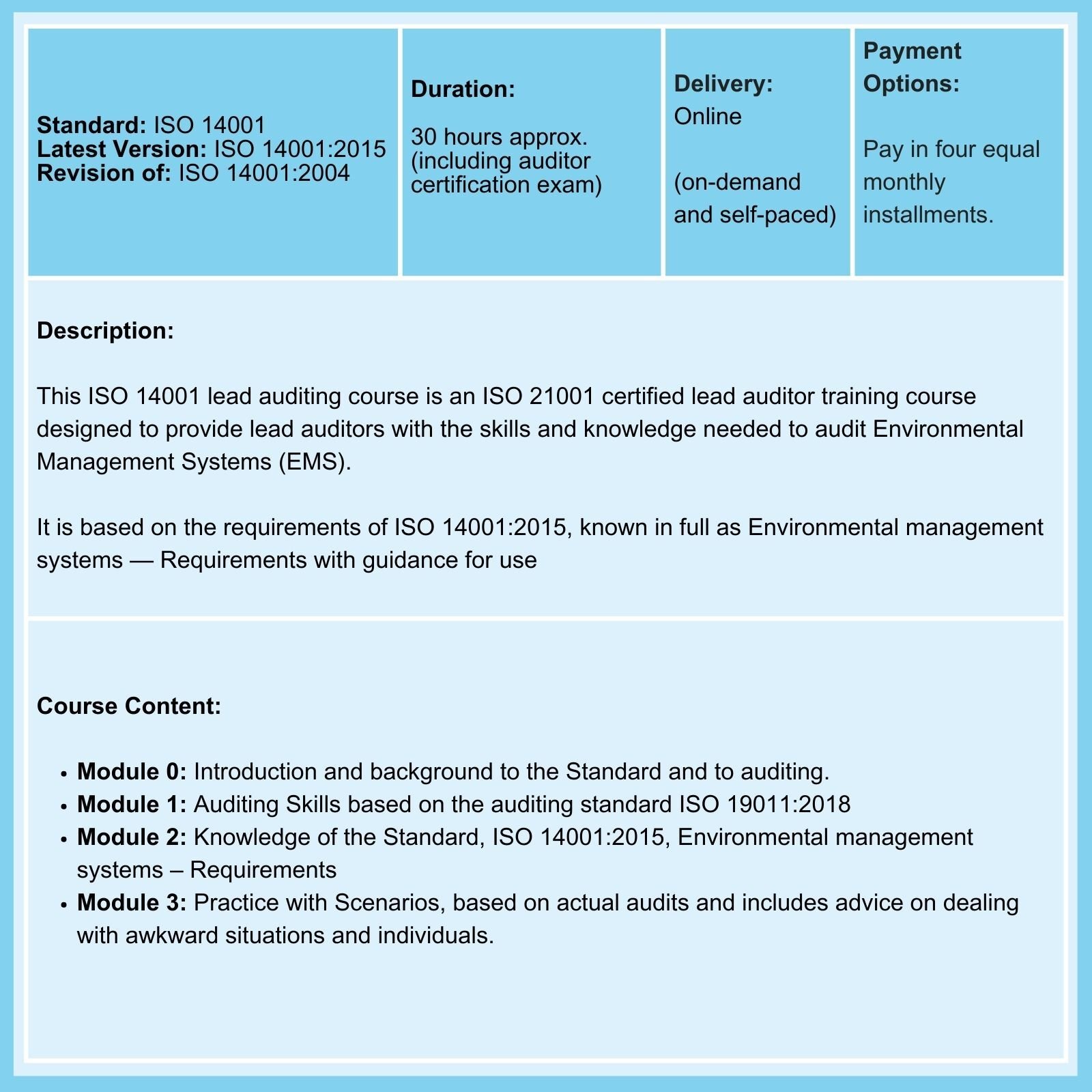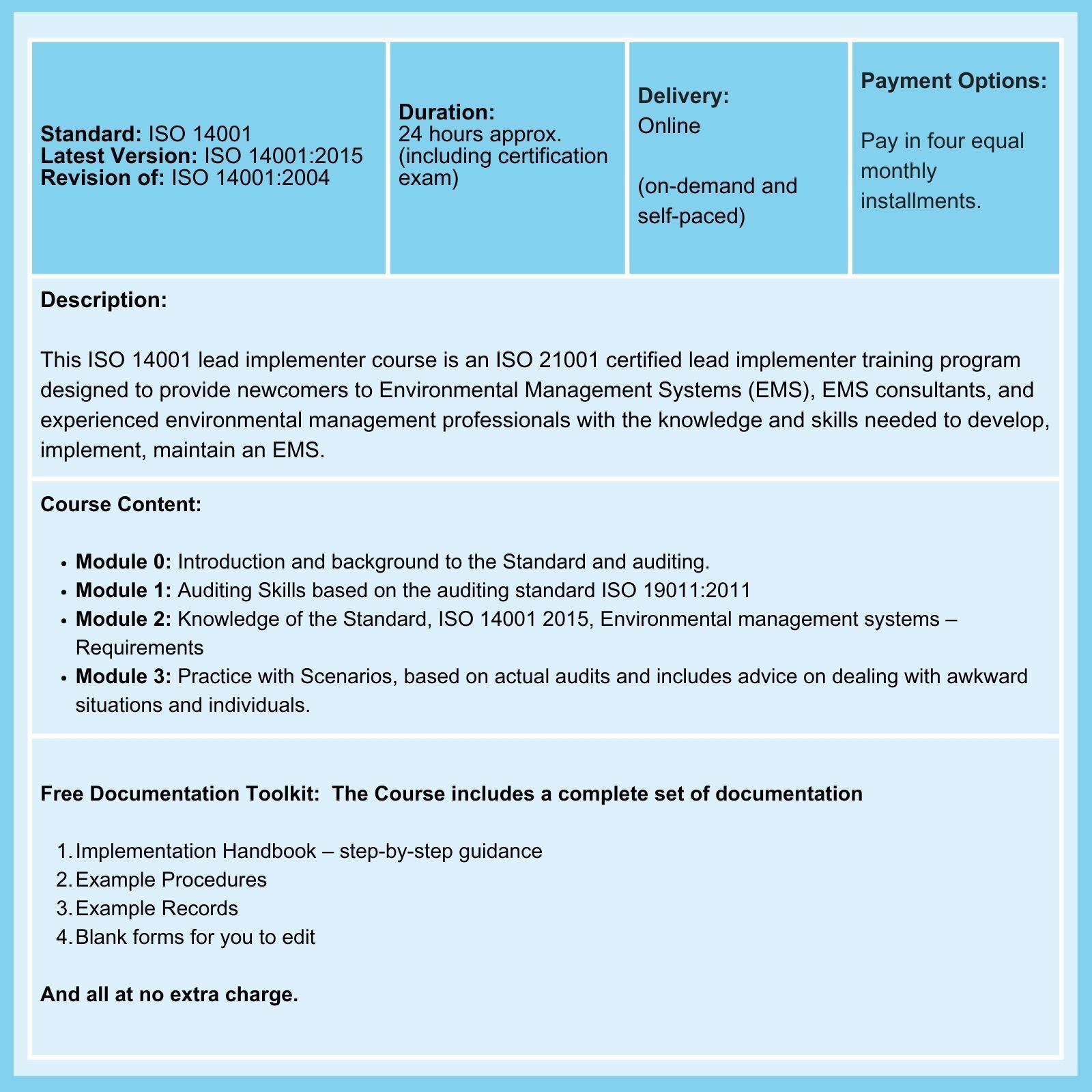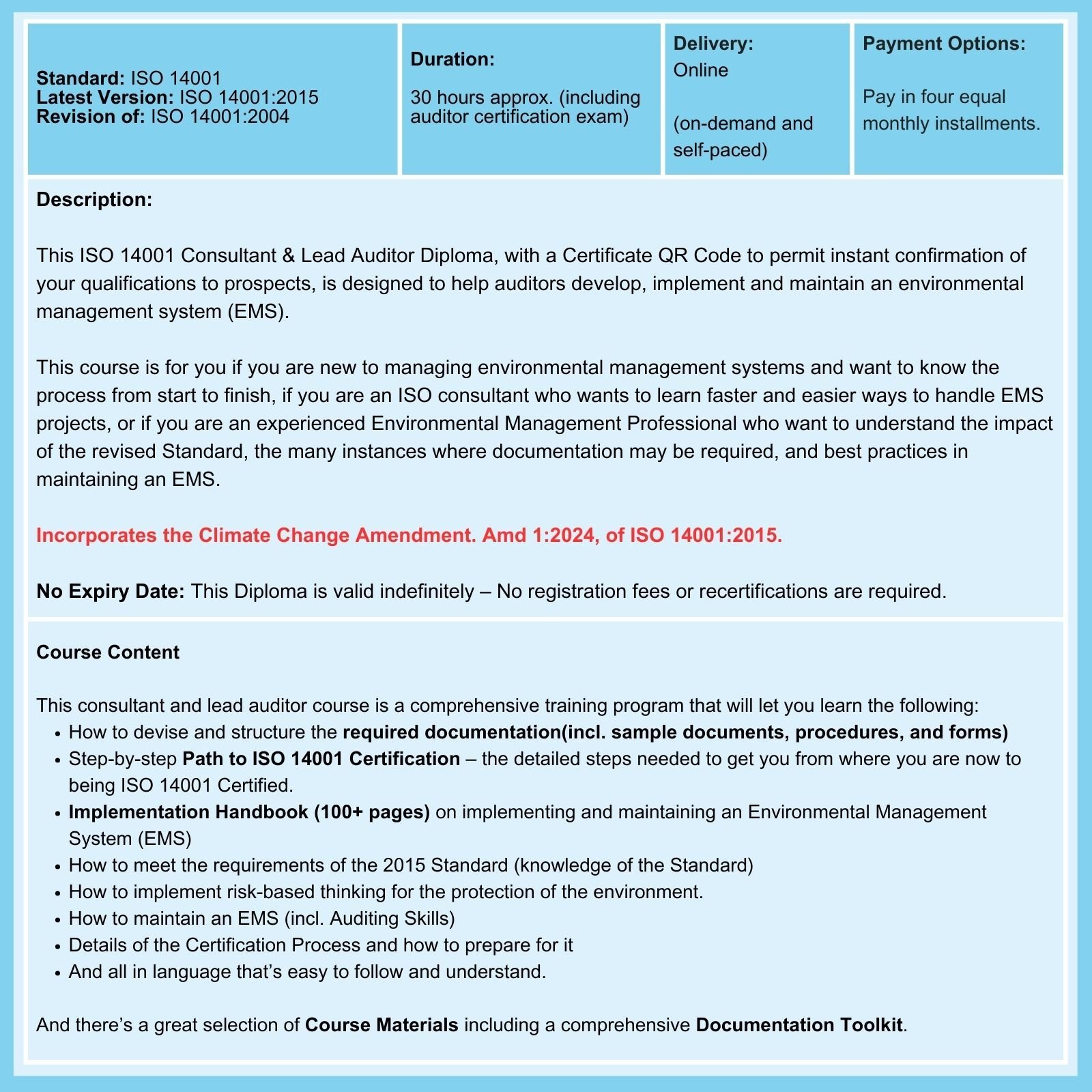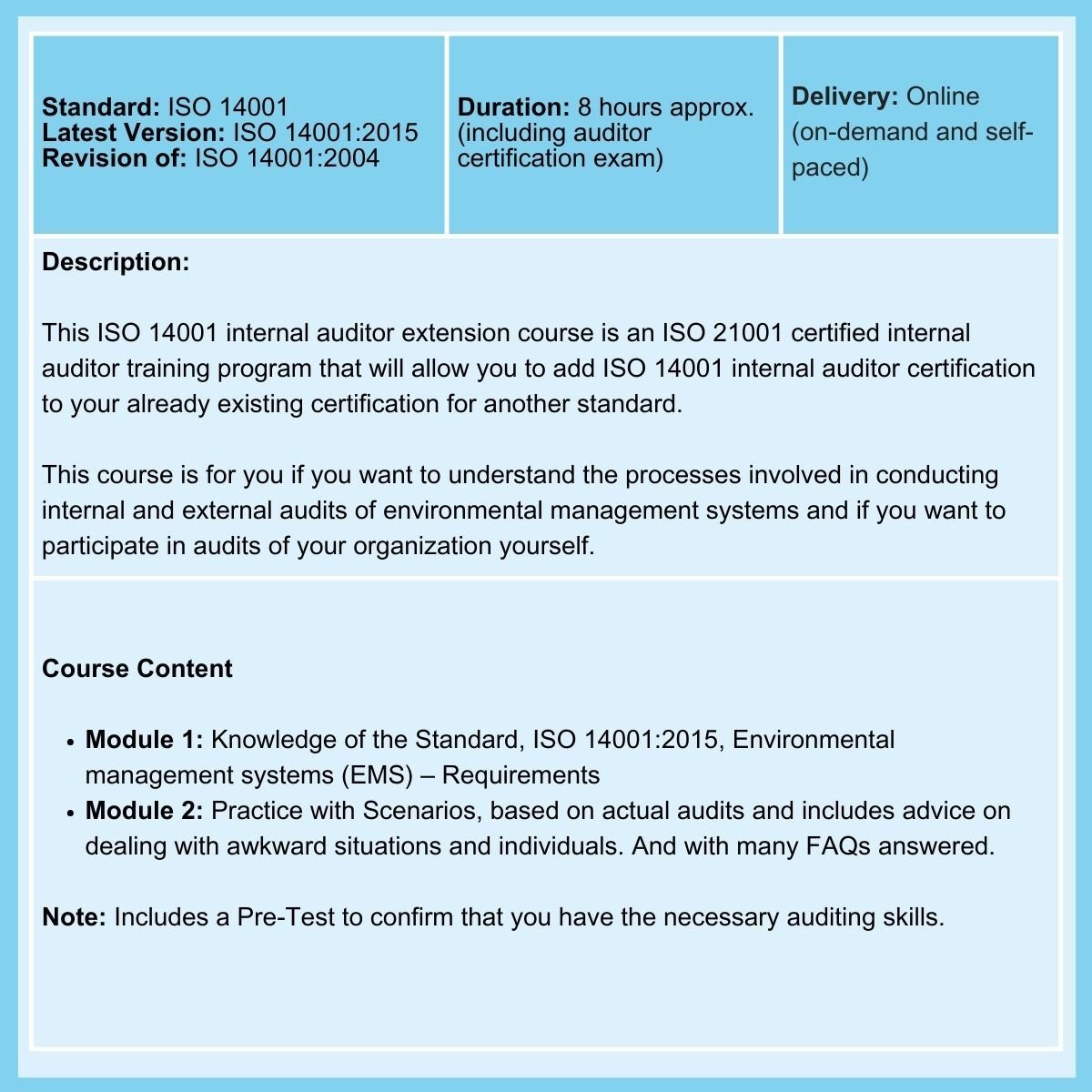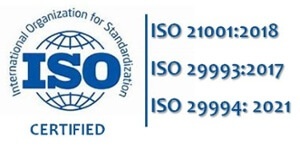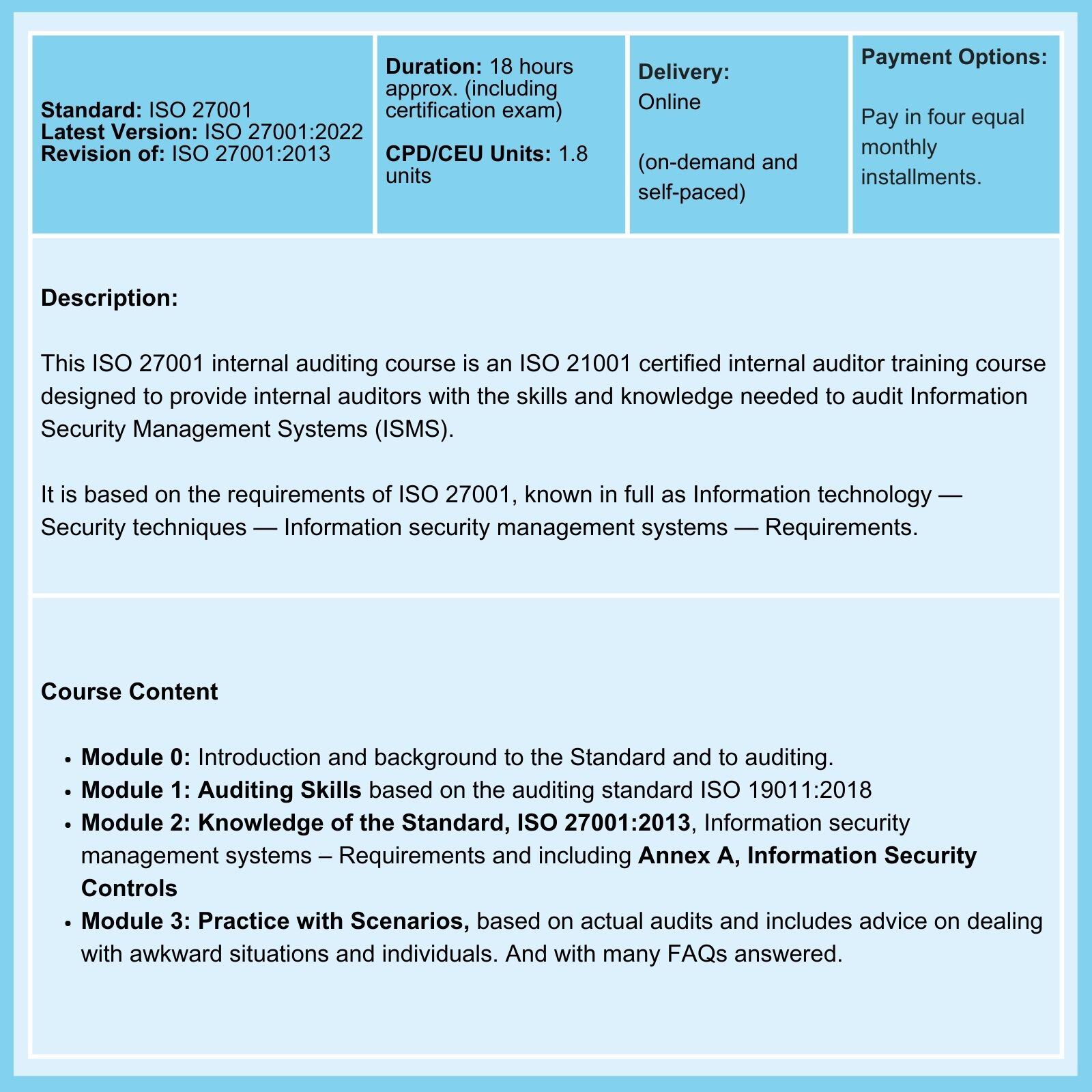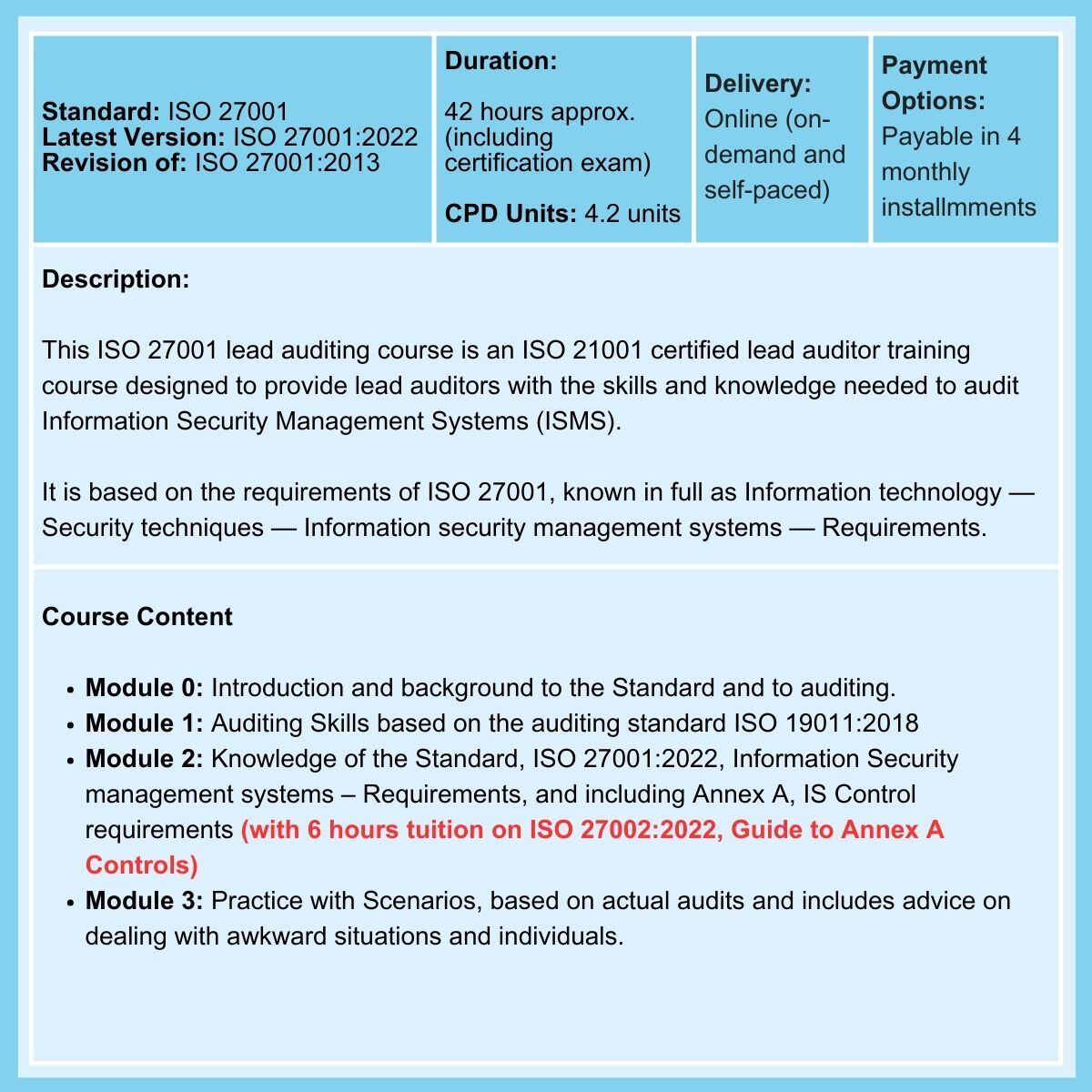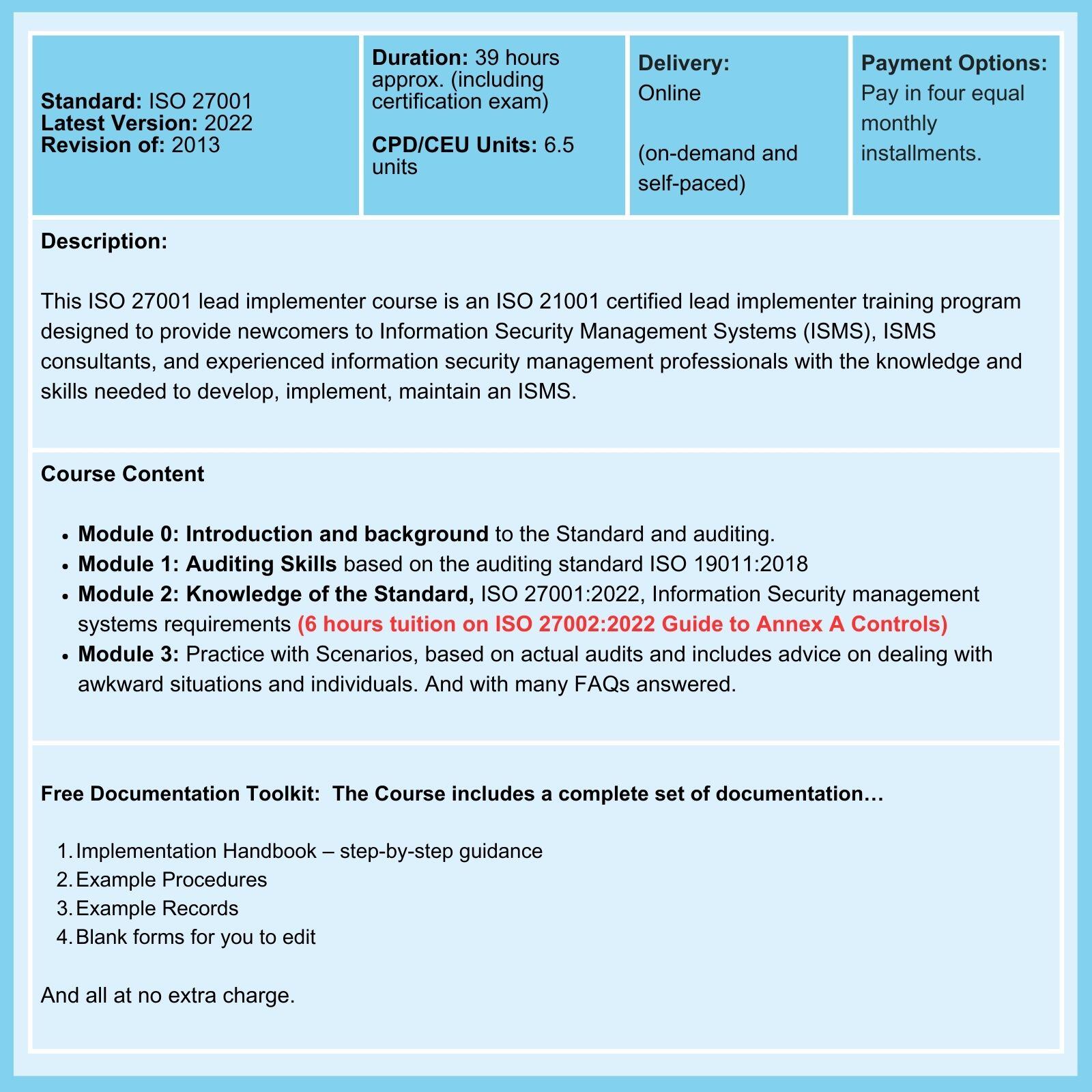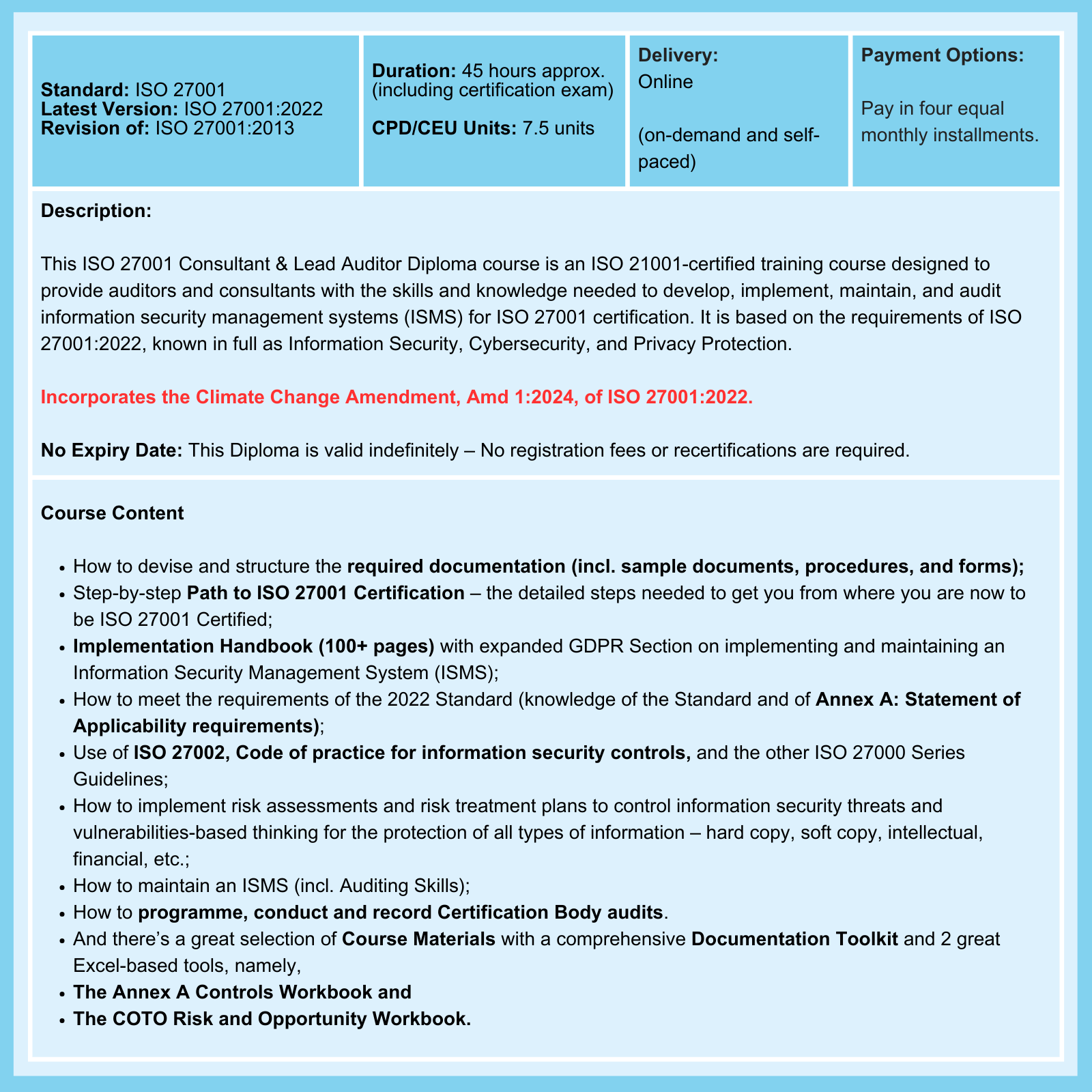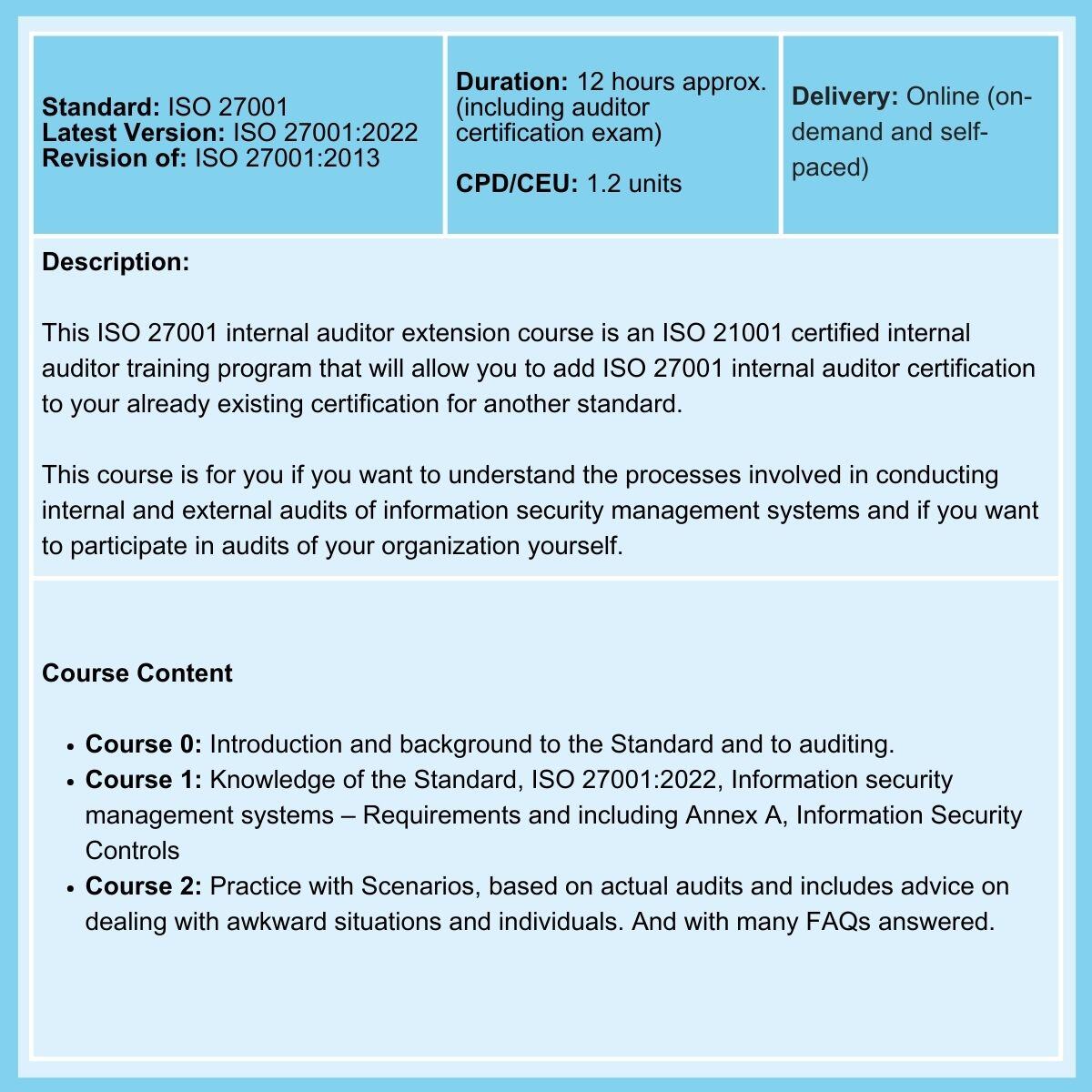Even the smallest organization has a lot to gain from a certified Environmental Management System (EMS)
New businesses often ponder the benefits of ISO 14001 Certification and, being busy with start-up priorities, postpone certification until it is asked for in a tender document or by a prospective customer.
At that point, it is, of course, too late. Optimistically, getting certified takes at least five months, and the opportunity is lost.
It would be best if you were proactive about your business's impact on the environment (and the law requires it). The list of benefits here can help persuade you and your colleagues to get started sooner rather than later on the path to ISO 14001 Certification.
10 Reasons Why ISO 14001 Compliance Matters to SMEs
While helping to preserve our environment is a given, here are ten more reasons why being ISO 14001 certified is important to big businesses and small and medium-sized businesses alike.
- Recognized reputation as an environmentally responsible business, and you have the internationally recognized Certificate to prove it,
- A larger pool of qualified candidates applying to work with your business because of this reputation,
- Reduced frequency of environmental incidents and a corresponding reduction in the number of times you need to advise Environmental Protection Agencies of such adverse events.,
- Improved ability to respond to regulatory compliance issues with an improved relationship with the regulatory authorities, as a consequence,
- Reduced the cost of Environmental Incidents as you have a system in place to prevent their recurrence,
- Reduced downtime and the costs of disruption to operations because of fewer Environmental Incidents, and when they occur, they are dealt with systematically and efficiently,
- Reduced cost of insurance premiums as insurance companies recognize that certified businesses make fewer and less costly claims,
- Peer recognition for having achieved an international benchmark, which in turn influences current and potential customers who are concerned about their social responsibilities),
- Improved scoring in pre-tender documents (especially from public sector organizations): helps ensure your organization can compete with established businesses, and
- Reduced fines if prosecuted as your certification constitutes objective evidence of the seriousness with which environmental aspects are treated.
So, you need certification to ISO 14001:2015 or 'ammunition' to persuade your colleagues. In that case, you now have ten good reasons for which the financial benefits, as well as the practical ones, can be calculated. Your staff and your customers will thank you for it.
Other Ways ISO 14001 Can Help You Achieve Sustainable Business Goals
Resource Planning
ISO 14001 compliance strongly emphasizes resource planning, which involves identifying, managing, and optimizing resource use within an organization.
It can help your organization incorporate sustainable energy solutions into your resource planning strategies by reducing energy consumption, improving waste minimization, and identifying alternative energy sources to fuel your business operations, among other things.
Supply Chain
ISO 14001's comprehensive approach to environmental management can have a significant effect throughout the supply chain. It can help your organization address environmental concerns within your operations and those of your suppliers and partners. A green supply chain that meets ISO 14001 requirements ensures that sustainability commitment is shared among business partners from start to finish.
Procurement
Green procurement - the practice of purchasing environmentally responsible products and services - also aligns well with ISO 14001. Your organization can use this standard to set criteria for sustainable suppliers and promote environmentally friendly procurement practices.
These can include buying from eco-certified suppliers, prioritizing local materials and suppliers, and considering the lifecycle of products — from production through use to disposal — to ensure they align with sustainability goals.
Manufacturing
Green manufacturing focuses on reducing waste, conserving resources, and minimizing emissions in production processes. ISO 14001 provides a roadmap for implementing these principles. It encourages the adoption of green technology, materials, and processes, promoting a more sustainable approach to manufacturing while maintaining operational efficiency.
Logistics
Sustainable logistics is about optimizing the movement of goods while minimizing the environmental impact. ISO 14001 can help your organization evaluate its logistics processes and find opportunities to reduce emissions, improve fuel efficiency, and minimize waste.
Reporting
Sustainability reporting is essential for organizations committed to transparency and accountability. ISO 14001 can help your organization with this by collecting, analyzing, and disclosing environmental performance data.
You can then use this data to prepare sustainability reports to prove your organization's dedication to responsible environmental practices to stakeholders, investors, and the public.
Corporate Social Responsibility
ISO 14001 compliance and Corporate Social Responsibility (CSR) go hand in hand, as ISO 14001 is an important tool for organizations looking to prove their commitment to sustainable business practices.
By adhering to ISO 14001 standards, your organization can demonstrate a proactive approach to reducing environmental impact, a key component of environmentally based CSR initiatives.
How to Become Compliant with ISO 14001?
Let's distinguish between managing the environmental aspects of your business and implementing a formal Environmental Management System.
As processes are established during a start-up, you'll need to address environmental aspects and their control through environmental management activities.
By the time you think about going forward for certification, a lot of the foundation work (in the form of risk assessments and environmental programs, for example) will already have been completed.
As soon as processes and procedures are bedded in, you can start exploring certification to ISO 14001. You definitely won't regret it, knowing that the potential for environmental harm is under control and in line with legal and regulatory requirements.
You'll also have your ISO 14001 Certificate to prove your commitment and achievements in minimizing environmental impact.
Starting Your Journey To ISO 14001 Compliance
Suppose you're wondering where to start with certification. In that case, you need ISO 14001 training, and you should begin by considering our ISO 14001 Lead Implementer Course and the other posts we have published about this standard (search 'News' for 'ISO 14001').
Related Courses
deGRANDSON Global is an ISO Certified Educational Organization
We have chosen ISO 21001 certification because, unlike IRCA and Exemplar badges (which, in our opinion, are commercially compromised), it is based on independent third-party assessment. It is a 'university grade' standard globally by schools, colleges, and universities to demonstrate competence.
We offer courses for ISO 9001, ISO 13485, ISO 14001, ISO 17025, ISO 27001, ISO 45001, Risk Management, Data Protection, and more.


